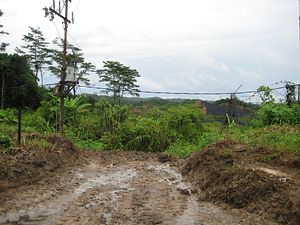On April 26, Indonesia’s Minister of Maritime Affairs Luhut Binsar Pandjaitan signed 23 memorandums of understanding (MoUs) with China while attending the Belt and Road Initiative (BRI) Forum in Beijing. Some view this as a reckless move, coming as it did so quickly after the Indonesian presidential election.
Some Indonesian economists have reserved opinions on China, concerned about a hidden agenda and bearing in mind the experiences with China’s so-called debt trap diplomacy of several other countries like Angola, Pakistan, and Malaysia.
Luhut, supported by Vice President Jusuf Kalla, argued that 14 of the 23 MoUs worth 200 trillion Indonesian rupiah (about $14.2 billion) were signed not in the form of debt, but project cooperation agreements that were Business to Business (B2B), not the government to government (G2G). The government will take on the role of facilitator, particularly in terms of facilitating investment licensing from China to Indonesia.
According to Luhut and Kalla, this step was taken because in recent years there has been a change in the dynamics of foreign investments entering Indonesia. At present, China has succeeded in shifting Singapore’s position as the largest investor in the country. The signing of these MoUs are considered an extension of welcoming and launching Chinese investments into Indonesia. Trade relations between the two countries are expected to increase dramatically.
Two of the 23 B2B agreements between Chinese and Indonesian companies will be located in North Kalimantan, according to the governor of North Kalimantan (Kaltara), Dr. H Irianto Lambrie, who was present at the forum in Beijing. The projects include a turn-key contract between PT Indonesia Dafeng Heshun Energy Industry and China Gezhouba Group Co. Ltd. for the construction of a hydroelectric power plant in Bulungan Regency, and a cooperation agreement between PT Indonesia Strategic Industry and Powerchina International Group Ltd for the construction of the Tanah Kuning Industrial Area-Mangkupadi.
Irianto stressed that the urgency of hydropower development is not only to supply electricity to industry, but will be directed as an energy supporter to other regions that lack electricity in sufficient supply.
The flow of Chinese investment, however, has inspired concerns within Indonesia. As mentioned above, the funding model on display in other states that have absorbed Chinese investment has generated concerns about becoming trapped by Chinese debt. A relatively comparable pattern has occurred in a number of countries in which China offers investment cooperation in the development of public facilities that are likely to not to be paid off in the near future. A subsequent failure to pay installments or other bottlenecks results in China taking ownership of the facilities. This loan-to-be-owned strategy is a main concern in Indonesia.
Of course, Indonesia, which is located on various BRI maps will not be able to avoid the entry of investments from China. However, when agreements like the bevvy of B2Bs MoUs are inked, the government must be alert in taking preventive steps so that the principles of control and supervision can be a “safety belt” if these projects are jammed or driven off track.
Indonesia can adopt policies carried out by other countries in the face of the influx of Chinese investment. One example comes from Malaysia, which has exerted efforts to renegotiate its BRI projects with China. After facing the option to either renegotiate or pay termination costs of about $5.3 billion, Prime Minister Mahathir Mohamad decided to meet China back to the table. Under a new agreement, the project costs have been reduced. Malaysia will still need to take a loan from a Chinese state-owned bank to fund the initiative, but it will be less than under the original deal. This shows that renegotiation is possible with Beijing.
Jakarta needs to remember that Indonesia has considerable bargaining power with regard to China. While Indonesia may need Chinese investments to improve its economy, China needs Indonesia to reach its economic goals overseas. The planned BRI maritime route from China to the Netherlands is not possible without Indonesia.
Dikanaya Tarahita is an independent journalist on Indonesian socio-economic affairs, who holds a Masters from the University of Manchester in the UK.
Dr. Muhammad Zulfikar Rakhmat is a lecturer at Universitas Islam Indonesia and a research associate at Jakarta-based Institute for Development of Economics and Finance (INDEF).

































